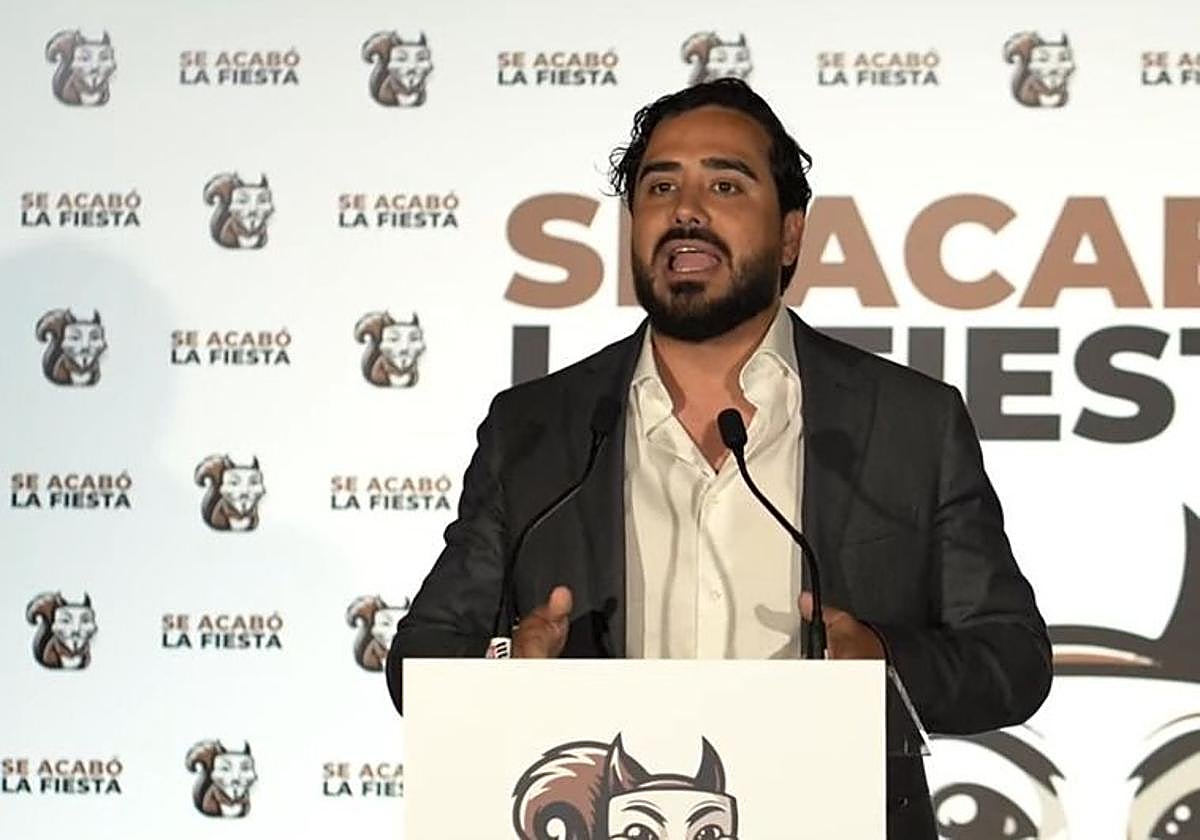What's the big idea?
It might seem self-contradictory to describe a political party as both lacking a manifesto and being 'extreme right' but that is how many Spanish media outlets are choosing to describe the new party that emerged in Spain's EU elections last Sunday, writes columnist Mark Nayler
Mark Nayler
Malaga
Friday, 14 June 2024, 15:22
It might seem self-contradictory to describe a political party as both lacking a manifesto and being 'extreme right': what exactly is that label being ... applied to if there are no policies to assess? But that's how many Spanish media outlets are choosing to describe the new party that emerged in Spain's EU elections last Sunday - Se Acabó La Fiesta (The Party is Over), which gained its largest portion of votes here in Malaga, with 7.4 per cent and 40,000. It's led by a 34 year-old social media activist named Alvise Pérez, whose chief political strategy so far has been to circulate rumours of political corruption online.
SALF's anti-establishment, anti-corruption stance isn't original: both leftist Podemos and liberal Ciudadanos (of which Pérez was a member up until 2019) ran on similar tickets before their breakthrough in the 2015 general election. And although Pedro Sánchez's Socialist-led government seems to be Pérez's main target for the moment, there is nothing inherently 'ultraderecha' about an anti-corruption stance: as SALF's leader has made clear, his target is the establishment as a whole. On other issues, such as immigration and gender violence, Pérez has expressed views that put him right of centre; but these are personal views and not to be confused with official SALF policies - as yet, anyway.
In winning almost a million votes last Sunday, Pérez has evidently tapped into a rich vein of frustration and disillusionment, just as Podemos and Ciudadanos did off the back of the 15-M protests over a decade ago. The crucial difference, though, is that neither of those two parties relied solely on criticism or negative energy - they also had ideas and possible solutions.
There is something essentially adolescent about SALF's smash-up-everything stance. I'm sure Pérez is right in saying that 'millions' of Spaniards are utterly fed up with their politicians and the complacent, self-serving establishment of which they are a part. But announcing, as he has done on social media, that a 'political, media and judicial mafia' is at work in this country sounds too much like a conspiracy theory to be taken seriously. Perhaps it just needs a little re-phrasing, though - because it's true that the supposedly robust distinction between the judiciary and government has become blurred, and that the amnesty deal for Catalan separatists showed that politicians can be above the law in Spain.
Pérez has confused the role of a politician with the roles of judge, lawyer and detective. He's trying to be all four things at once, but we don't elect politicians so that they can spend their time digging up dirt on their opponents, nor should a promise to do so pass as a manifesto. Both Podemos and Ciudadanos, who once formed the vanguard of Spain's anti-corruption movement, could tell Pérez that a party can't run on negative energy alone.
¿Tienes una suscripción? Inicia sesión
